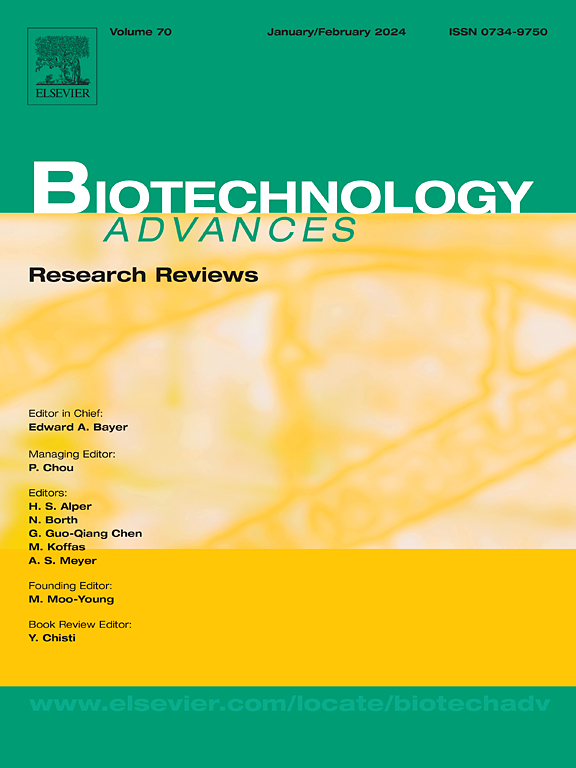Enzymatic polymerization: Recent advances toward sustainable polymer synthesis
IF 12.1
1区 工程技术
Q1 BIOTECHNOLOGY & APPLIED MICROBIOLOGY
引用次数: 0
Abstract
Enzymatic polymerization has emerged as a sustainable strategy for synthesizing biodegradable, biocompatible polymers, addressing critical environmental challenges posed by conventional petroleum-based materials. This review comprehensively explores advancements from the past five years, spotlighting six pivotal enzymes lipase, horseradish peroxidase, laccase, glucose oxidase, glucosyltransferase, and phosphorylase-alongside synergistic multi-enzymatic systems that enable complex polymerization cascades. Diverging from prior reviews focused on individual enzymes or specific polymer classes (e.g., polyesters, polyamides), our work provides a systematic classification of enzymatic polymerization mechanisms, emphasizing substrate specificity, reaction efficiency, and product diversity. Integrating advances in enzyme engineering, cascade catalysis, and green chemistry, this analysis outlines strategies to customize polymer architectures, identifies challenges in scaling enzymatic processes, and underscores opportunities for industrial applications. It advocates interdisciplinary innovation to advance sustainable polymer synthesis aligned with circular economy principles, emphasizing enzymatic methods' transformative potential for eco-friendly manufacturing paradigms.
酶聚合:可持续聚合物合成的最新进展。
酶聚合已成为合成生物可降解、生物相容性聚合物的一种可持续策略,解决了传统石油基材料带来的严峻环境挑战。这篇综述全面探讨了过去五年的进展,重点介绍了六种关键酶,脂肪酶,辣根过氧化物酶,漆酶,葡萄糖氧化酶,葡萄糖基转移酶和磷酸化酶,以及协同多酶系统,使复杂的聚合级联。与以往的综述不同,我们的研究侧重于单个酶或特定聚合物类别(如聚酯、聚酰胺),我们的工作提供了酶聚合机制的系统分类,强调底物特异性、反应效率和产物多样性。结合酶工程、级联催化和绿色化学的进展,本分析概述了定制聚合物结构的策略,确定了规模化酶促过程中的挑战,并强调了工业应用的机会。它倡导跨学科创新,以推进符合循环经济原则的可持续聚合物合成,强调酶法在环保制造范例中的变革潜力。
本文章由计算机程序翻译,如有差异,请以英文原文为准。
求助全文
约1分钟内获得全文
求助全文
来源期刊

Biotechnology advances
工程技术-生物工程与应用微生物
CiteScore
25.50
自引率
2.50%
发文量
167
审稿时长
37 days
期刊介绍:
Biotechnology Advances is a comprehensive review journal that covers all aspects of the multidisciplinary field of biotechnology. The journal focuses on biotechnology principles and their applications in various industries, agriculture, medicine, environmental concerns, and regulatory issues. It publishes authoritative articles that highlight current developments and future trends in the field of biotechnology. The journal invites submissions of manuscripts that are relevant and appropriate. It targets a wide audience, including scientists, engineers, students, instructors, researchers, practitioners, managers, governments, and other stakeholders in the field. Additionally, special issues are published based on selected presentations from recent relevant conferences in collaboration with the organizations hosting those conferences.
 求助内容:
求助内容: 应助结果提醒方式:
应助结果提醒方式:


